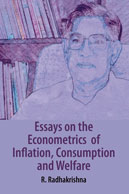New Releases...
Download Catalogue...
Download Excel Data
Download PDF Catalogue
You will get a Excel file with detail about catalogue.
You will get PDF file with detail about catalogue.
Detailed info...

Paper-back • 2022
Pages: 105
ISBN: 9789332705920
US$69.95
+ Add to Cart
Also available as e-book
Publisher:
Academic Foundation
Contribution of Non-alcoholic Beverage Sector to Indian Economic Growth and Atmanirbhar Bharat
Arpita Mukherjee‚ Eshana Mukherjee‚ Vishnu Menon
About the Book
<p>Food Processing will be a key sector in meeting India’s goal of achieving inclusive growth as the country sets its vision for Amrit Kaal – India @2047. Non-alcoholic beverages are a key component of the food processing sector and the growth of this sector can make all its stakeholders, from farmers to small and medium producers, supply chain agents and consumers, a part of India’s successful growth story. </p>
<p><br />
India is the largest global producer of several raw materials used in manufacturing non-alcoholic beverages. Today, around 25 to 30 per cent of fruits and vegetables produced in the country are wasted in the supply chain. Beverage processing can help reduce this wastage, as it has in several other countries. The government has introduced schemes like Mega Food Parks and Production Linked Incentive Scheme and several start-ups with innovative products have come up in the non-alcoholic beverages sector. Yet, domestic production is below potential and that of other developing countries in the ASEAN region, and exports are low. </p>
<p><br />
This report aims to understand the contribution of the non-alcoholic beverage sector towards the Indian economy, examine its strengths and best practices, identify challenges and suggest a way forward to make India one of the world’s leading beverage processing hubs. The report is based on a review of global policies and best practices, secondary data and information analysis, and a primary survey of different supply chain agents, including farmers, companies, contract manufacturers and logistics providers.<br />
The report for the first time brings forward a detailed study of the tax regimes of different countries and India’s own GST regime to understand how taxes can impact the growth of the sector. Global studies show that high taxation, in the absence of complementary reforms, will not lead to positive health outcomes and can be regressive, with the tax burden falling disproportionately on lower income groups. It could also inhibit growth, innovation and investment. At the same time, moderate taxation can achieve revenue targets as well as other government objectives related to positive health outcomes, growth of food processing, investment in manufacturing and farmers’ welfare. However, few studies have looked at the effects of taxation on the non-alcoholic beverage sector in India and policies are often not driven by research and evidence. This report aims to address this lacuna. </p>
<p><br />
The report will help policymakers design the right policies, based on data and evidence, and align policies across different government agencies/ministries/departments. It identifies areas where industry and government can collaborate, which is a core area of the UN Sustainable Development Goal-17. It provides the academics and researchers with a comprehensive overview of the sector and the industry with an overview of the Indian market, and aims to foster debate and discussion on how India can become a world beverage processing hub. </p>
About the Author(s) / Editor(s)
<p><strong>Arpita Mukherjee</strong> is a Professor at ICRIER. She has over 25 years of experience in policy-oriented research, working closely with the government in India and policymakers in the European Commission and its member states, United States (US), Association of Southeast Asian Nations (ASEAN) and in East Asian countries. She has conducted studies for international organisations, Indian industry associations, non-government organisations and companies. <br />
Her areas of expertise include trade and investment, trade agreements, services, special economic zones, economic corridors, retail and food supply chain, start-ups and entrepreneurs, e-commerce, and cross-border labour mobility. She specialises in sector and product-specific market trends, go-to market strategies, and government policies.<br />
Dr Mukherjee has a Ph.D in Economics from the University of Portsmouth, UK, and prior to joining ICRIER, she worked with the UK-based think tank, Policy Studies Institute, and taught at the University of Portsmouth. She has over 80 publications, including in national and international referred journals, books and book chapters and government reports. Dr. Mukherjee is a member of various government committees and policy panels and is on the editorial board of 10 journals. She has presented her work in various conferences and seminars and is on the advisory board of industry associations and non-government organisations. She is a regular contributor to newspapers and magazines.</p>
<p> </p>
<p><strong>Eshana Mukherjee</strong> is a Research Assistant at the Indian Council for Research on International Economic Relations (ICRIER). She has worked on projects for the Indian government, foreign governments, multilateral organisations and industry associations on India’s trade, investment and trade barriers. She has conducted sector-specific studies covering sectors like food processing, information technology, nonalcoholic beverages and gems and jewellery. Her role in the projects include literature review, data analysis and report writing. Her research is a key input into policy making in India. <br />
She has completed her M.Sc. in International Business Economics and Finance from the Gokhale Institute of Politics and Economics, Pune, and B.A (Hons.) Economics, from Jamia Millia Islamia, New Delhi.</p>
<p> </p>
<p><strong>Vishnu Menon</strong> is a Consultant at the Indian Council for Research on International Economic Relations (ICRIER). He has worked on projects on India’s foreign direct investments, international trade and trade barriers for the Indian government, multilateral organisations and industry associations. He has undertaken sector-specific studies covering sectors like pharmaceuticals, information technology, insurance, defence and aviation. He has also collaborated in projects through drafting literature reviews, data analysis and report writing. He previously worked in corporate services in organisations such as Moody’s Analytics and has been an independent political consultant focusing on agricultural economics and media strategy for a leading national political party.<br />
He has completed his M.Sc. in International Finance and Economic Policy from the Adam Smith Business School, The University of Glasgow, United Kingdom.</p>
Print Brochure...
Print as it is
Customised brochure
You will get a printout of what you see on your screen under 'Detailed Info'(Uneditable).
You will have the opportunity to edit the text and adjust the extent to fit on A4 size sheet or more accordingly as you desire. Plus, you can download the edited/customised Brochure or simply print it (CTRL + P).











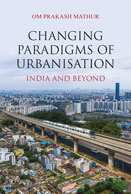
-Web-194.jpg)


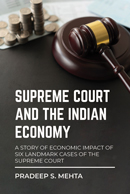








-COVER-web-194.jpg)






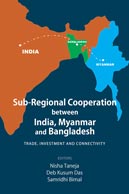






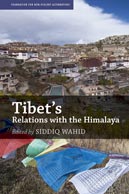






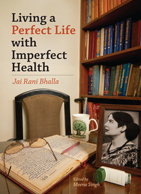












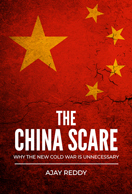
.jpg)






